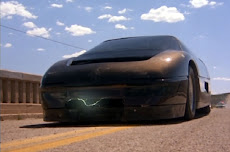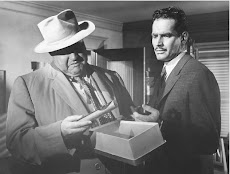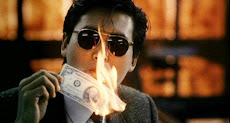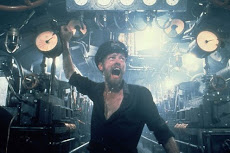Mark Zuckerberg is, apparently, about as socially inept as the average IT guy, the one who creates his own tech kingdom at your corporate branch, government agency, school, or wherever. Such is how Mark's portrayed The Social Network; "not an asshole, just someone who's trying to hard to be one." In either case, he's America's youngest billionaire, and his creation, Facebook, drastically changed, a
 nd continues to change, online interaction.
nd continues to change, online interaction.To start, I note one of Social Network's strongest attributes: consistent intensity. Don LaFontaine, throughout his career, had to narrate at least one summer movie trailer a year that required him to voice "This summer's ultimate thrillride!," but for me (and I believe most viewers) it's an autumn drama about a dot-com startup that actually keeps the heart racing, more effectively than most of those forgettable Keanu Reeves vehicles. It's been a few days since viewing, and this still stands out the most. The intensity gives me pause, though: intensity, on its own, does not a great film make (this is especially true with one of Fincher's earlier works, Fight Club), but it can leave the mind a bit over-enthused for awhile. Thus, this review might lack objectivity that will settle in once I've calmed down.
That said, I believe David Fincher has finally made a masterpiece, with the help of Jeff Cronenweth's cinematography, Trent Reznor on the score, and a perfectly assembled cast (yes, even with respect to Justin Timberlake).
That said, I believe David Fincher has finally made a masterpiece, with the help of Jeff Cronenweth's cinematography, Trent Reznor on the score, and a perfectly assembled cast (yes, even with respect to Justin Timberlake).
The film's timeframe is fall 2003 through fall 2004. One evening, Mark Zuckerberg wanders back to his Harvard dorm room from a breakup (brought about by his inferiority complex and passing his self-loathing on to a girl who would sink to date him), and drunkenly starts a project to take his mind off of things. The result is "Facemash," a website that uses pictures of female students from different residence servers at Harvard and compares them in pairs, allowing visitors to choose which one is the more attractive of the two. The site is a smash hit for a day or two, with traffic that crashes the residence server and leads to discipline against Mark.
Up to this point, the use of fact in the film is outstanding: Zuckerberg (Jesse Eisenberg) narrates the creation of facemash word-for-word from Zuckerberg's actual blog that he kept at the time of creation.
Not surprisingly, in addition to near-expulsion for hacking residence servers, a website comparing women based on looks leaves Zuckerberg quite unpopular with many students at Harvard, and here Mark hoped that Facemash would garner him popularity that would get him into one of the college's elite private clubs (that is, fraternites with more money and no Greek letters). It doesn't, but it does get the attention of two elite Harvard rowers who are twin brothers, Cameron and Tyler Winklevoss. They want Mark to code their exclusive Harvard social networking site, HarvardConnect (later named ConnectU, a social network that failed).
Mark agrees, and so the stalling begins. It's crafted as a subtle story of revenge: if you can't join them, beat them. For two months, Mark e-mails updates to the brothers (and their partner, Divya Narendra), saying that everything is going smoothly. Just days before the Facebook launch, Mark pulls the plug on working for HarvardConnect. Let the lawsuits begin!
This is but one plotline: Mark also has differences from the outset (that eventually results in a separate lawsuit) with his initial CFO and friend, Eduardo Saverin. As Facebook blossoms, the tensions only become worse.
Mark is about 19 years old at this point, as are most of his business associates. The Winklevoss brothers are perhaps around 21. It takes the entrance of Sean Parker (Justin Timberlake), the seemingly washed-up founder of Napster, for an adult to come onto the scene. And he's around the ripe old age of 25.
College drama is easily forgotten by most: in college, conflicts disappear just as easily as they arise. Many adults never make better friends than the ones they had in college, because these are the guys and gals who knew them before they were somebody, who liked them even when there was nothing they could possibly get other than camaraderie. In college drama, all is easily forgiven. But what if college drama is worth billions of dollars? Such are the stakes in The Social Network; regardless of the film's historical accuracy, the lawsuits surrounding Facebook's origin continue even today.
Aside from fast-paced drama, I most appreciate Social Network's portrayal of the intensity of innovation. Harvard educated both Bill Gates and Mark Zuckerberg, though neither of them actually graduated. Two of America's richest entrepreneurs. Like Gates, Zuckerberg took ideas from others (in this case campus acquaintances, pre-existing websites (MySpace and Friendster were established before Facebook), etc.) and jumped on it. Perhaps the Winklevoss brothers did have the idea to make an exclusive online social network (restricting membership to college students with a ".edu" address for a specific college), but they handed it off to a kid and proceeded to sit on their hands and wait. Not surprisingly, they missed the bus (but walked off from their first suit with somewhere around $60 million, and are still looking for more).
Capitalism, or the free market, gets blamed for lots of things. We're well past the age of Adam Smith, and live in an time where government spending (that is, spending tax dollars paid by residents who earned them) is believed to actually prime the economy, despite nearly a century of history that proves otherwise. Facebook is considered a marvel, and the company is held in high esteem by liberals and conservatives a like (people of all political stripes utilize it for their respective causes). Everyone loves innovation and invention, but those who oppose free markets fail to explain how their alternatives provide as much (or sometimes any) incentive to create new things.
Is Facebook really better for society? The debate continues, but it's definitely a hot commodity. And it's still free to use, in exchange for a whole lot of personal data. The fascinating aspect of Sean Parker's entrance is that until he tells Mark about the potential of Facebook (billions instead of millions), Mark is overly cautious, even timid. Facebook was not entirely Mark's baby, but he surrounded himself with largely the right people and, years later, Facebook is probably here to stay for quite some time.
Feelings get hurt in free markets. People fail (Exhibit A: Who even remembers the Winklevoss ConnectU?). The ones who succeed do so because they produce what people want. It's sometimes a messy business, business, but 99.9% of the time the ends to justify the means.
That other .1%? Let the courts figure it out. Lawyers gotta eat, too.
Not surprisingly, in addition to near-expulsion for hacking residence servers, a website comparing women based on looks leaves Zuckerberg quite unpopular with many students at Harvard, and here Mark hoped that Facemash would garner him popularity that would get him into one of the college's elite private clubs (that is, fraternites with more money and no Greek letters). It doesn't, but it does get the attention of two elite Harvard rowers who are twin brothers, Cameron and Tyler Winklevoss. They want Mark to code their exclusive Harvard social networking site, HarvardConnect (later named ConnectU, a social network that failed).
Mark agrees, and so the stalling begins. It's crafted as a subtle story of revenge: if you can't join them, beat them. For two months, Mark e-mails updates to the brothers (and their partner, Divya Narendra), saying that everything is going smoothly. Just days before the Facebook launch, Mark pulls the plug on working for HarvardConnect. Let the lawsuits begin!
This is but one plotline: Mark also has differences from the outset (that eventually results in a separate lawsuit) with his initial CFO and friend, Eduardo Saverin. As Facebook blossoms, the tensions only become worse.
Mark is about 19 years old at this point, as are most of his business associates. The Winklevoss brothers are perhaps around 21. It takes the entrance of Sean Parker (Justin Timberlake), the seemingly washed-up founder of Napster, for an adult to come onto the scene. And he's around the ripe old age of 25.
College drama is easily forgotten by most: in college, conflicts disappear just as easily as they arise. Many adults never make better friends than the ones they had in college, because these are the guys and gals who knew them before they were somebody, who liked them even when there was nothing they could possibly get other than camaraderie. In college drama, all is easily forgiven. But what if college drama is worth billions of dollars? Such are the stakes in The Social Network; regardless of the film's historical accuracy, the lawsuits surrounding Facebook's origin continue even today.
Aside from fast-paced drama, I most appreciate Social Network's portrayal of the intensity of innovation. Harvard educated both Bill Gates and Mark Zuckerberg, though neither of them actually graduated. Two of America's richest entrepreneurs. Like Gates, Zuckerberg took ideas from others (in this case campus acquaintances, pre-existing websites (MySpace and Friendster were established before Facebook), etc.) and jumped on it. Perhaps the Winklevoss brothers did have the idea to make an exclusive online social network (restricting membership to college students with a ".edu" address for a specific college), but they handed it off to a kid and proceeded to sit on their hands and wait. Not surprisingly, they missed the bus (but walked off from their first suit with somewhere around $60 million, and are still looking for more).
Capitalism, or the free market, gets blamed for lots of things. We're well past the age of Adam Smith, and live in an time where government spending (that is, spending tax dollars paid by residents who earned them) is believed to actually prime the economy, despite nearly a century of history that proves otherwise. Facebook is considered a marvel, and the company is held in high esteem by liberals and conservatives a like (people of all political stripes utilize it for their respective causes). Everyone loves innovation and invention, but those who oppose free markets fail to explain how their alternatives provide as much (or sometimes any) incentive to create new things.
Is Facebook really better for society? The debate continues, but it's definitely a hot commodity. And it's still free to use, in exchange for a whole lot of personal data. The fascinating aspect of Sean Parker's entrance is that until he tells Mark about the potential of Facebook (billions instead of millions), Mark is overly cautious, even timid. Facebook was not entirely Mark's baby, but he surrounded himself with largely the right people and, years later, Facebook is probably here to stay for quite some time.
Feelings get hurt in free markets. People fail (Exhibit A: Who even remembers the Winklevoss ConnectU?). The ones who succeed do so because they produce what people want. It's sometimes a messy business, business, but 99.9% of the time the ends to justify the means.
That other .1%? Let the courts figure it out. Lawyers gotta eat, too.



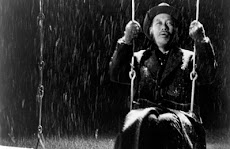

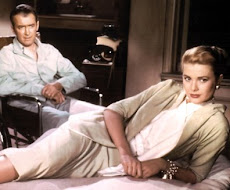_01.jpg)





